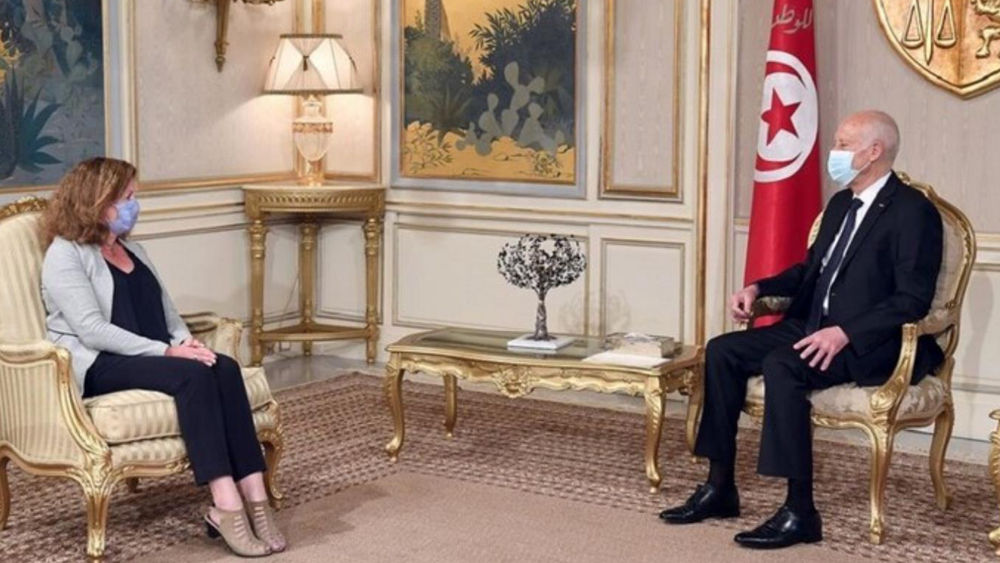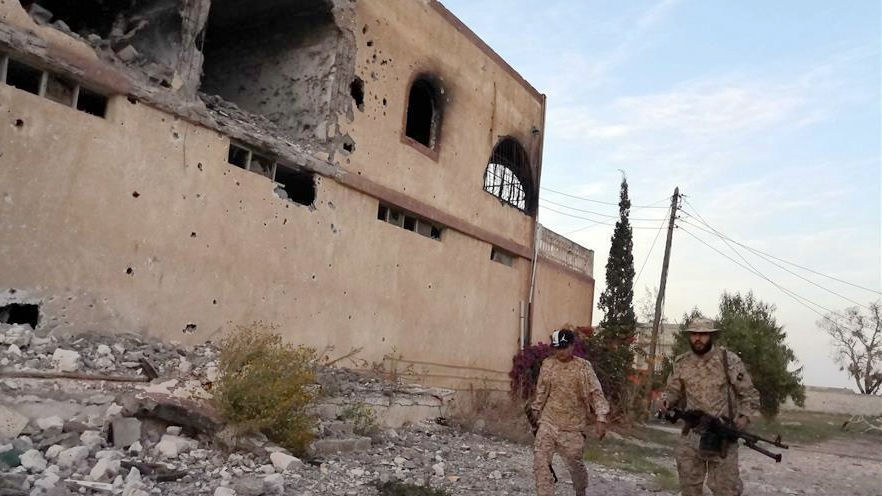
A screenshot from a tweet shows UN Special envoy to Libya Stephanie Williams, left, in discussion with President of Tunisia Qais Saeed on preparations for holding the Libyan Political Dialogue Forum in Tunis in early November. /@ArraedLG
A screenshot from a tweet shows UN Special envoy to Libya Stephanie Williams, left, in discussion with President of Tunisia Qais Saeed on preparations for holding the Libyan Political Dialogue Forum in Tunis in early November. /@ArraedLG
The UN's Libya envoy on Monday urged rival parties to place the national interest before political ambitions when they meet for talks next month aimed at ending a decade of bloodshed.
The North African country is dominated by armed groups, riven by local conflicts and divided between two bitterly opposed administrations: a United Nations-recognized unity government based in Tripoli and its eastern-based rival backed by strongman Khalifa Haftar.
Neighboring Tunisia is set to host talks in early November including representatives of civil society, tribesmen, political leaders, and members of bodies representing both administrations.
"I make it a condition for anyone to participate in this dialogue that they remove themselves from consideration in high government positions. That includes the presidency council, the prime minister, ministries and various positions of sovereignty. We want to see people who are not there for their own political career but for their country," said Stephanie Williams, the acting UN Special Envoy for Libya.
The talks are intended to prepare for national elections, she added.

Fighters of the UN-backed government forces of Libya are seen in the south of Tripoli, December 2, 2019. /Xinhua
Fighters of the UN-backed government forces of Libya are seen in the south of Tripoli, December 2, 2019. /Xinhua
Tunisia's Foreign Minister Othman Jerandi called for "a direct dialogue between Libyan, without interference.” Jerandi hoped the dialogue could lead to a political solution to the crisis.
A previous agreement between rival Libyan sides, signed in Morocco in 2015, created a unity government that was never recognized by Haftar.
In April 2019 he launched an offensive to seize Tripoli, but was pushed back after over a year of fighting.
The two rival camps entered into negotiations in September with meetings touching on institutional, military and political themes in Morocco, Egypt and Switzerland, respectively.
The Tunis dialogue will begin on October 26 by videoconference in light of the COVID-19 global pandemic before continuing face-to-face in early November.
Besides several members of the High Council of State (west) and the Tobruk Parliament (east), the talks will also include participants selected by the UN, Williams said.
(With input from agencies)